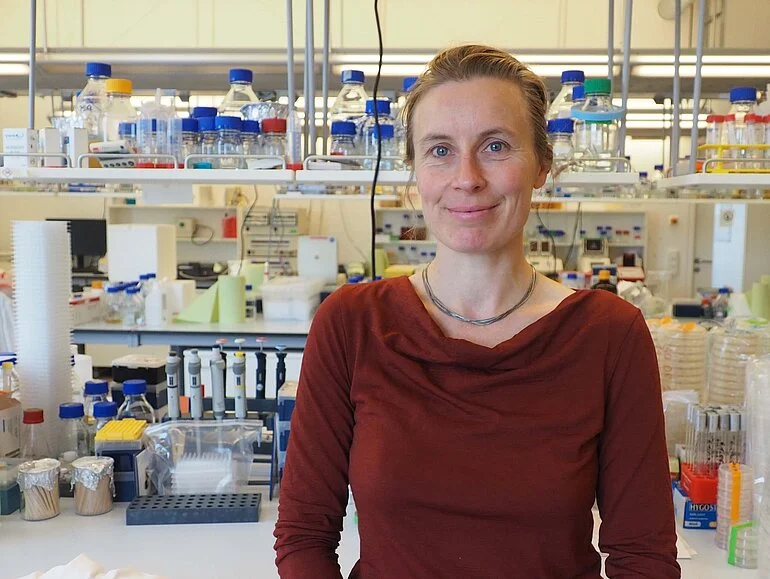
Prof. Dr. rer. nat. Eva Holtgrewe-Stukenbrock
Vollmitglied
Christian-Albrechts-Universität zu Kiel
Botanisches Institut
Environmental Genomics
Am Botanischen Garten 9
24118 Kiel
Raum: 505
Informationen über Prof. Dr. Eva Stukenbrock
Eva Stukenbrock beschäftigt sich mit der Evolution von Pflanzenpathogenen. Ihre Forschung konzentriert sich vor allem auf die Auswirkungen der Domestizierung von Nutzpflanzen und der Landwirtschaft auf die Entstehung neuer Pathogenarten.
Die Forschung in der Gruppe von E. Stukenbrock integriert computergestützte Analysen und experimentelle Ansätze. Im Rahmen des Exzellenzclusters ROOTS konzentrierte sich die Forschung auf genetische Daten von historischen Pflanzenresten aus verschiedenen Zeitpunkten, vom Neolithikum bis zum Mittelalter, mit dem Ziel, die Auswirkungen von Domestikation und Züchtung auf die Pflanzenvielfalt zu verstehen.
Qualifikationen und Karriere
Jahr | Tätigkeit | Ort |
|---|---|---|
| Seit 2014 | Professorin (W3) | Christian-Albrechts-Universität zu Kiel & Max-Planck-Institut Plön |
| 2012–2014 | Leitung Max Planck Forschungsgruppe: MPRG Fungal Biodiversity | Max-Planck-Institut für terrestrische Mikrobiologie, Marburg |
| 2010–2012 | Project group leader | Max-Planck-Institut für terrestrische Mikrobiologie, Marburg |
| 2008–2010 | PostDoc | Bioinformatics Research Center, Universität Aarhus, Dänemark |
| 2007 | PostDoc | Plant Pathology, ETH Zürich, Schweiz |
| 2004-2007 | Promotion | ETH Zürich, Schweiz |
| 1998–2004 | Studium der Biologie: M.Sc. in Biologie | Universität Copenhagen, Dänemark |
Akademische Auszeichnungen
- 2023, ERC ERC Konsolidierungszuschuss "FungalSecrets"
- 2022, gewähltes assoziiertes Mitglied der Französischen Akademie der Wissenschaften
- Since 2020, gewähltes Mitglied der Amerikanischen Akademie für Mikrobiologie
- 2014-2024,2x Max-Planck-Stipendium, Max-Planck-Institut für Evolutionsbiologie Plön
- 2012–2014, Stipendium der Max-Planck-Gesellschaft. Mit dieser Förderung baute E.H. Stukenbrock die unabhängige Max-Planck-Forschungsgruppe "Fungal Biodiversity" am Max-Planck-Institut für terrestrische Mikrobiologie in Marburg auf.
- 2008 Preisträgerin der L'Oreal-Stiftung für Frauen in der Wissenschaft
- 2007 ETH-Goldmedaille für herausragende Dissertation

